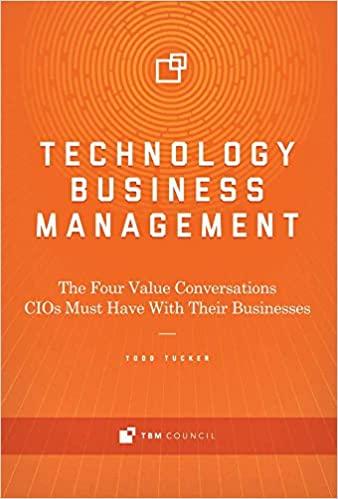Question
For companies looking to improve processes and profitability, supply chain management expertise is rapidly becoming one of todays most sought-after skills. Given the complexity of
For companies looking to improve processes and profitability, supply chain management expertise is rapidly becoming one of todays most sought-after skills. Given the complexity of supply chains within national and multinational corporations, it can be difficult to pinpoint the root causes of problems impacting the entire chain. It takes highly qualified professionals to identify and correct issues, target new opportunities and institute real, meaningful change. Effective supply chain management can deliver enormous benefits to a company, which is why talented supply chain managers and directors are in high demand. As an example of the dividends supply chain management projects can yield, consider the case of appliance manufacturer Whirlpool.
Whirlpools Supply Chain Management Challenges
While the Whirlpool brand has long been associated with reliable household appliances, its delivery performance in 2000 was anything but reliable. In every measurable way, the supply chain was failing to meet expectations inventory quantities were either too low or too high, or they had the wrong items in inventory, or they had the right inventory delivered to the wrong place. These inconsistencies were frustrating to retail partners and customers alike, and it was clear to executive leadership that these supply chain management issues had to be fixed.
The Consequences of Expansion
Of course, this situation that Whirlpool found itself in did not come about overnight. In fact, many of problems that led to this crisis were a result of the companys geographic expansion and business acquisitions. With many different systems and procedures cobbled together into an unwieldy mess, the supply chain management team found that this complex, patchwork reporting made it exceedingly difficult to track and control all of Whirlpools production and distribution processes.
Due to these supply chain issues, the companys overall availability rate which measures how often a product is in the right place at the right time was only 83% in the year2000. Relative to industry standards, this was considered a dismal failure. The unfortunate irony of the situation is that availability was low even while total inventory levels were often too high. In terms of supply chain management, Whirlpool was at a competitive disadvantage. Whirlpools is expected to sell 55 000 units for 2023. Annual carrying costs are R25 per unit and the order cost is R 10.50. The factory works 295 days per year.
3.1 Identify and critically evaluate the various supply chain strategies and suggest which one would be most appropriate for Whirlpool to use. (15)
3.2 Based on the information provided in the case study above, determine:
3.2.1 The Economic Order Quantity (EOQ) (5)
3.2.2 The number of orders per year (3)
3.3.3 The length of the order cycle. (2)
Step by Step Solution
There are 3 Steps involved in it
Step: 1

Get Instant Access to Expert-Tailored Solutions
See step-by-step solutions with expert insights and AI powered tools for academic success
Step: 2

Step: 3

Ace Your Homework with AI
Get the answers you need in no time with our AI-driven, step-by-step assistance
Get Started


